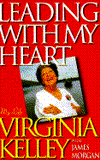Denial of Death
by:
Ernest Becker


Cobra Event
The Cobra Event
The Cobra Event is a story that needs to be told. It was well researched; there was a great deal of accurate, true documentation involved. There was also a definite problem; Robert Preston is not a writer; and the editors at Random House should be ashamed of themselves for releasing an excellent story without either a thorough editing or a ghost writer to assist in the telling of an extremely dramatic saga.
The story is set in motion in New York City, a seventeen-year-old student, Kate Moran, wakes up feeling ill, showing signs of coming down with the common cold. Within hours she is having violent seizures, and begins a process of self-cannibalization. A second death of a similar nature is discovered, a homeless person known locally as the Harmonica Man, and the Centers for Disease Control (CDC) in Atlanta is called in.
Alice Austen, a 29-year-old member of the Epidemic Intelligence Service, also trained as a medical pathologist agrees to go to New York City to follow up on the possibility of an epidemic. Playing detective, Dr. Austen finds a small box with tiny writing indicating; Human trial #2, April 12, Archimedes Fecit. Her detective works turns up a similar box in the possession of the Harmonica Man.
A splatter of blood from an infected source turns a New York City Medical Examiner into a raving lunatic; before long the FBI, the Army and public health officials are involved in the hunt for the source of the virus. The search takes them through Manhattan, ending up in the subway tunnels under New York City, seeking the culprit before he can detonate a biological bomb that would wipe out New York City and ultimately the world.
While the details of this story are fictional, they are based on the actual history of biological weapons and their use by civilian terrorists and military experimentation. Preston has utilized sources including members of the FBI, the United States military, public health officials, intelligence officers in foreign governments, and scientists who have been involved in the development and testing of strategic bioweapons. Readers can tell when he is quoting statistics acquired from these sources for he dictates this knowledge as if he were a reporter, reporting an article for a newspaper or magazine.
While this novel deals with a very real possibility; properly written it would be a true horror classic. The author, Richard Preston is noted for his nonfiction book, "The Hot Zone," dealing with deadly new viruses that seem to be emerging from the depths of Africa. I believe the success of this book deals essentially with his non-fiction novel; "The Hot Zone".


Leading with My Heart: My Life
Virginia Kelley’s book Leading With My Heart could have been written by almost anyone; but then again, publishers would not have held an interest in just anyone who wanted to write an autobiography. When the someone who decides to put their life on paper for the world to view is the mother of then President; William Clinton that made all of the difference in the world.
This is actually a delightful work. I love listening to the tales of people of my mother’s generation, for the most part, they all have the same theme; they grew up poor, in a nation of uncertainty. Despite that themes, each of these people have survived and the tales they tell, if listened to could teach everyone a lesson; how to take from nothing and make a life.
Virginia Kelley, probably due to the moral values of the time, was married five times to four different men; marrying Roger Clinton after divorcing him because of his alcoholic rages and abuse. This also seemed to be a trait of women of Virginia’s era, remarrying the man who had tormented and tortured them.
Virginia however, did for herself, what many women did not do; she pursued further education and a fulfilling career as a nurse-anesthetist. Although a job she loved, it would also become a thirty year fight with changing times and changing technology to continuously work in the profession she loved.
As everyone else who lived during that specific era, Virginia Kelley had her ups and downs. She hid her heartbreak behind a smile. Unlike everyone else, she raised a son who would become the President of the United States.
Reading Virginia Kelley’s book forced recollections of stories I had heard from a former mother-in-law, deceased friends and relatives, but more than anything, it made me think of how closely her life resembled my own mother’s.
While it is not a page turner, nor is it a drama, it is an interesting story, one that I am glad I took the time to read.

